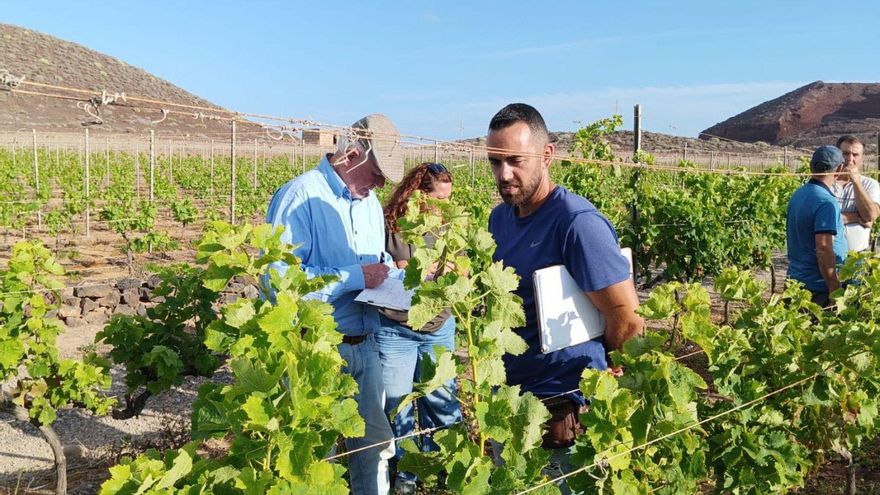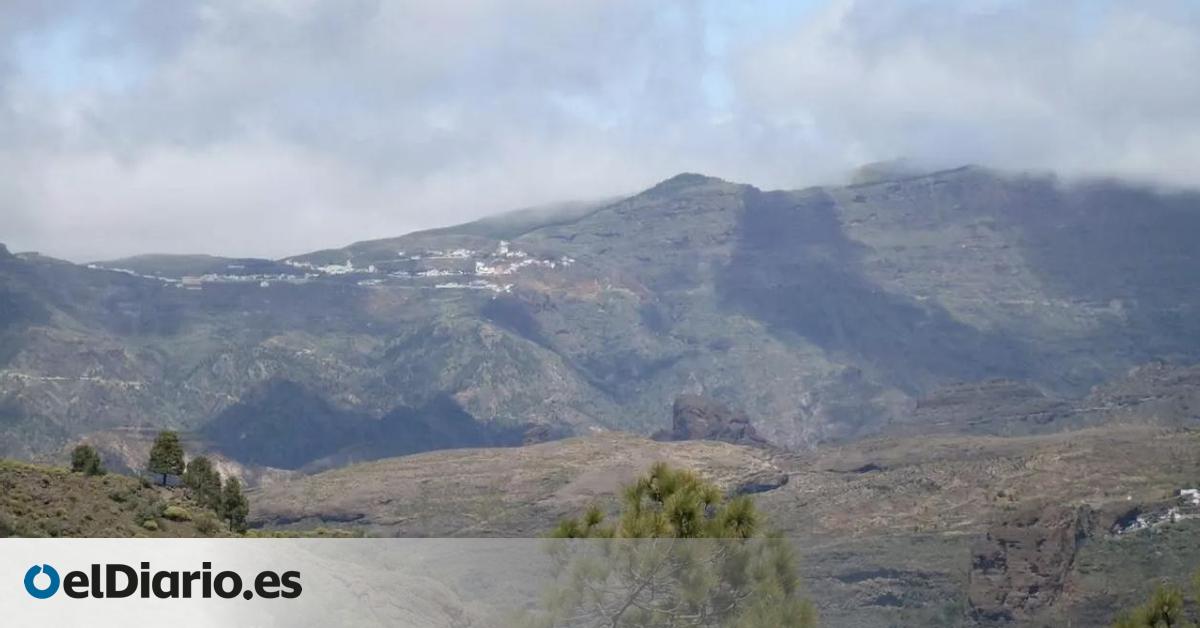The resumption of the political course comes with considerable responsibilities for the First Deputy Mayor and Councillor for Public Services, Environment, Environmental Sustainability, and Strategic Planning of the Santa Cruz de Tenerife City Council, Carlos Tarife (PP). Completing the zero discharge works, improving cleanliness, and addressing the future of the bicycle lane, which is currently under judicial review, are just some of the challenges he faces. Tarife remains resolute, despite facing public criticism for many of his decisions, particularly regarding tree management. He states firmly: “If certain groups continue to lie and make absurd claims about tree felling, we will not hesitate to take them to court.”
Priorities for the Upcoming Term
“This political term will be exciting as it is the year leading up to the elections in May 2027. Personally, I have several goals to achieve, the first being to complete all zero discharge works to the sea. Currently, along with Enmasa, we are undertaking works in San Andrés and María Jiménez, expected to be completed by February, along with those in Añaza and Acorán. From that date, the City Council could apply for a Blue Flag for the municipality. However, we will not be able to do so because until the State Government completes the Buenos Aires wastewater treatment plant, this distinction will not be granted for the capital’s coastline. I once again urge the central Executive to get moving. They’ve told us it will be completed by November 2026, but it needs to be sooner, otherwise the works in Añaza and Acorán, which involve two pumping stations to divert wastewater to the treatment plant, will also be stalled. The second goal is to improve cleanliness in the city. I have always been critical of the contract awarded in 2018; we should have more street sweepers, which is what we will pursue in the future. Nonetheless, we must maximise the existing contract, which is why we are holding meetings with the company to increase the number of street sweepers on the ground, along with enhancing inspections and penalties. There is a free number for bulk item collection (922224849), and it is unacceptable that some people continue to do as they please. Therefore, we are coordinating with the Local Police to increase fines.”
Call for Government Collaboration
“You invited the Minister of Ecological Transition, Sara Aagesen, to visit the treatment plant works. Have you received a response?”
“Neither the previous minister nor the current one, nor the Deputy Government Representative, Javier Plata, have responded. Santa Cruz is a provincial capital, and I would like them to speak out regarding this issue, as we still do not know if by the end of this year or early 2026 we will have a project to finally provide a marine outlet for Añaza and create a bathing area for citizens without discharges. The City Council is doing its part, but if the State once financed a project for a beach in Santa Cruz de La Palma, I pose a question to the Socialist Party of Tenerife: Are they willing to finance the Añaza project as well? What I am certain of is that if Alberto Núñez Feijóo becomes Spain’s president after the elections, I will go to Madrid with the treatment plant proposal, the Añaza project, and many other things to get answers. We need funding for the special plan for Las Teresitas or for roads in Santa Cruz, as I see progress for other islands and even for Tenerife, but very little for Santa Cruz.”
Concerns on Housing and Occupation
“Do you believe the State is falling short in its duties?”
“I remain very concerned about housing and occupation issues. I believe that constructing new homes should be much easier, and I still miss having a state plan, as the current one is outdated. In Santa Cruz, according to some reports, we have nearly 20,000 vacant homes because it takes owners up to seven years to evict a squatter. Public administrations must guarantee that the homeowner receives the agreed rent and that the Justice System and the National Police have a law allowing them to remove an illegal occupant within 24 hours. We have neighbourhoods facing this problem, yet instead of providing solutions, what is happening is that almost draconian conditions are being imposed on those wishing to rent their properties. The problem is that Pedro Sánchez’s Government is not addressing these issues because it is bogged down by its partners.”
Action Plan for Housing Crisis
“What actions are planned in response to the housing crisis in the municipality?”
“Creating public housing in Santa Cruz is vital, but it needs to be accompanied not only by a new state housing plan that allows us to continue reforming homes in the city but also by enabling new construction. We will require financing from the State, as there are 3,000 people searching for homes in the city, and we need to take available land for development. However, we need money because, although it is a competence of the Autonomous Community, the funding comes from the central Government. This City Council has not stopped applying for all State calls to secure funding, and in October we will receive a response from EDIL, where we have requested four million euros to build 60 more social homes in Ofra. We are among the few councils in the Canary Islands that have used European funds to construct due to the Government’s paralysis. So, let no one say that we do not care about this.”
Franco Monument Controversy
“The State is also waging a campaign regarding the Franco monument. What will happen to this sculpture?”
“We are awaiting the Cabildo’s report on the architectural values to determine whether it needs to be reinterpreted or removed. However, Minister Ángel Víctor Torres is largely to blame, as, during his time as President of the Government, he approved a regional catalogue of Francoist remains that was contested, and then he followed through with the BIC file being processed by the Insular Corporation. Torres is hindering everything good that could happen in Santa Cruz. Furthermore, during his recent visit, I missed his clarification on what will happen to the nearly 900 unaccompanied minors we have in the city, who are being compassionately cared for by Canary Islands institutions but abandoned by the State.”
Opening Up to the Sea
“Another matter concerns access to the sea. Will there be more beaches?”
“We could have a city closer to the sea, but it isn’t just about construction. I advocate for a tram line from Plaza de España to San Andrés, which would urbanise that road. We currently have an ideas competition open to create a new beach area in Acapulco, from Cidemat to El Bloque in Valleseco. The rest of the coastline is port area, and in the Los Llanos dock, we are in discussions with the Port Authority to reach an agreement, first for the Puerto-Ciudad building, and also for the Southern quay, where the Fred Olsen ferry will dock and where I would like to have a large plaza for events and concerts that can also be used for summer terraces and ample parking. However, once the treatment plant is completed, we could have another beach in the Parque Marítimo. Then we will need to continue assessing, together with the Government of the Canary Islands, the urban operation at the Refinery since the Honduras dock will be another maritime point in the future. Moreover, in the San Andrés coast, where the breakwater is, we are studying a project to make the area accessible for swimming. If we achieve all this, the city will experience a significant transformation that will encourage many locals to stay in Santa Cruz on Sundays.”
Commercial Opening Discussions
“Speaking of Sundays, how is the debate on commercial opening progressing?”
“In October, the Commerce Forum will be held, and the reality is that the capital has changed over the years. From Monday to Saturday, everything is open, and the city operates well, but most places close on Sundays, so the city is not obtaining the data it should have. I think the city centre deserves an investment plan, which can be achieved with the Framework Agreement. To that end, we have initiated the process for a complete rehabilitation of Plaza del Príncipe, as well as seeking European funding to renovate Calle Castillo. We are also working on more parking options on Calle de la Noria and Almeyda. We should not fear change, but we must seek consensus, and if any action to open the city on Sundays does not work, we will revert to the previous situation.”
Bicycle Lane Controversy
“What about the bicycle lane, which is currently stalled due to legal issues?”
“We have an approved Mobility plan, a bicycle director plan, and there are sufficient national regulations, but we are waiting for the Justice System to make a decision promptly, as we are left in a state of total defenselessness with a file that has passed all legal reports. I still believe in the cycling network, and my plan is to continue to implement it in the city, such as on Rambla or Avenida de Bélgica and San Sebastián. However, if we are forced to remove the bike lane from the centre, we will comply with the court order, although I would consider it a legal nonsense. Nonetheless, while we await the decision from the Superior Court, alternatives for possible openings could be explored, as was done with Plaza de Orche, since we cannot indefinitely keep a project that is 99% complete stalled. However, if it is ultimately ruled that there will be no bike lane, it will be removed and El Pilar will be reopened as before, although I advocate for making this street pedestrian. This government group’s objective is not to patch up existing plans; the bike lane is part of the city’s overall planning.”
Public Sentiment on Mobility Changes
“Are citizens resistant to changes in mobility?”
“I am convinced that pedestrianisation and reducing vehicle traffic in some areas will benefit citizens, although it is true that planned changes are happening all at once. Reducing parking spaces in city areas is necessary because we have 65,000 surface parking spaces while the capital has 140,000 registered cars, in addition to the 80,000 that come in daily. Therefore, we need to change how we move, create more parking, establish green and blue paid zones, and implement the bike lane. Furthermore, we must discuss further burying roads in the city with the Government of the Canary Islands, as project development in Las Palmas is excellent while Santa Cruz is lagging due to lack of funding.”
Tree Cutting Criticism
“Other criticisms centre on tree felling. What is your stance?”
“It is a positive sign that there are groups concerned about Santa Cruz’s issues, but it is curious that some, when the PSOE governed in Santa Cruz, became silent, and when we govern, they suddenly speak out, often with falsehoods. This is a line I will not let go by. Until now, we have played dumb, but the freedom of expression of some is approaching limits that will no longer be tolerated. We cannot call into question the experts in this house and make unfounded claims, such as that we are desertifying the city or that we have felled 1,000 trees in two years. That is false, and I will demonstrate it with a report. Neither the mayor nor I wake up at six in the morning to take an electric saw to fell trees, as pruning is the last resort for a tree. I guarantee that we are conserving the tree population to the fullest, and as an example, I mention Puerto Escondido where we will present the reform project this month. There are trees that have caused many problems due to illness, which we are treating, and at least two are responding well, and we will be able to save them. Felling is not a political decision; I insist, and if some individuals continue to spread falsehoods, we will not hesitate to take them to court for lying. One thing is freedom of expression, which we all possess, and another is to spread false news about this City Council, which also has the capacity to defend itself and which has the best Parks and Gardens department in the Canary Islands.”













